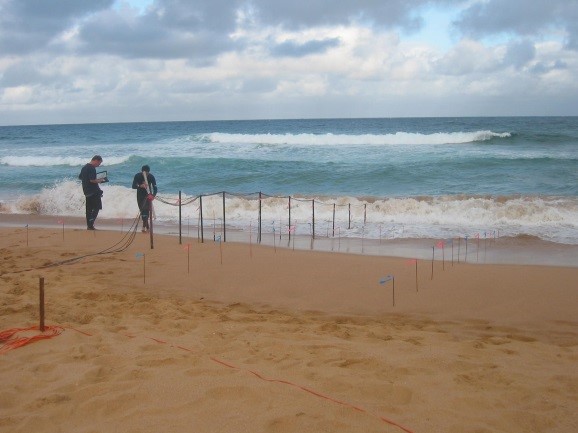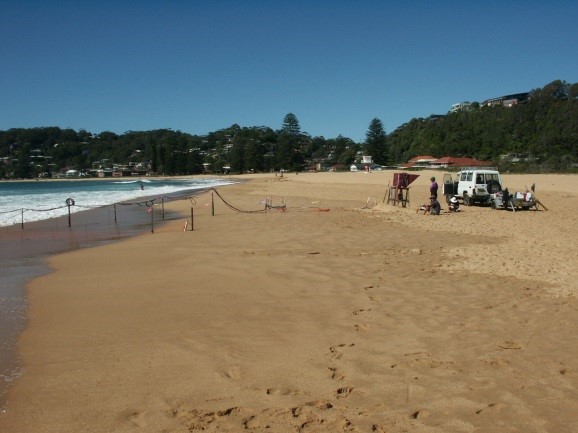Coastal engineering projects
If you are interested in undertaking a PhD project in Coastal Engineering at The University of Queensland, please get in touch with one of the members of our research group.
Some potential projects are listed below, or you can form your own project. We have 3 new wave flumes with state of the art computer controlled wavemakers which provide great opportunities for new experimental PhD projects on beach evolution, tsunami waves, wave runup and overtopping and wind waves.
Research Interests: Coastal and Ocean engineering
- Surf zone and swash zone hydrodynamics
- Breaking waves
- Long wave forcing
- Tsunami run-up
- Sediment transport processes
- Beach morphology
Suggestions for Ph.D. projects
Impact of Sea Level Rise and clustered storm events on beaches
A long standing rule (the Bruun rule) to determine beach recession under sea level rise has never been rigorously tested. Using new wave flumes, this project would test this model and determine if it is correct for typical Australian beach conditions, and if not, why not. Novel beach nourishment techniques will also be tested to determine if they can mitigate sea level rise erosion. Similarly, the impact of clusters of storms on beach erosion and recovery is not well known. This is very difficult to assess in the field, but forms a great topic for a laboratory study.
Lagrangian measurement and modelling of nearshore hydrodynamics and sediment transport
Lagrangian measurements of hydrodynamics and sediment transport are extremely useful for developing process knowledge and modelling of coastal sediment transport, and UQ has pioneered recent advances. This project will extend this work using both laboratory and fieldwork, and combine the observations with numerical and analytical modelling.
Swash overtopping, setup and coastal inundation
Laboratory and field measurements will be used to consider the influence of overtopping of coastal barriers or beach berms on surf zone setup, and to quantify setup in the swash zone. The work will be useful for storm and cyclone surge predictions, coastal inundation and the modelling of coastal lagoons and creeks. Novel laboratory and field experiments will be carried out and the data compared to existing analytical and numerical models.
Dissipation of unsteady surf zone bores
Current models for surf zone energy dissipation assume steady bores. This is not the conditions in reality. Our recent work suggests significant differences in the rate of energy dissipation for unsteady bores, which may lead to new models for surf zone waves. This project will be a combination of laboratory work and fieldwork using our new wave flumes and Gold Coast field site.
Previous and current research projects
1. Swash zone measurements and berm overwash: Avoca Beach, NSW.
Weir, F. M., Hughes, M.G., Baldock, T.E. 2006. Beach face and berm morphodynamics fronting a coastal lagoon. Geomorphology, 82, 331-346


